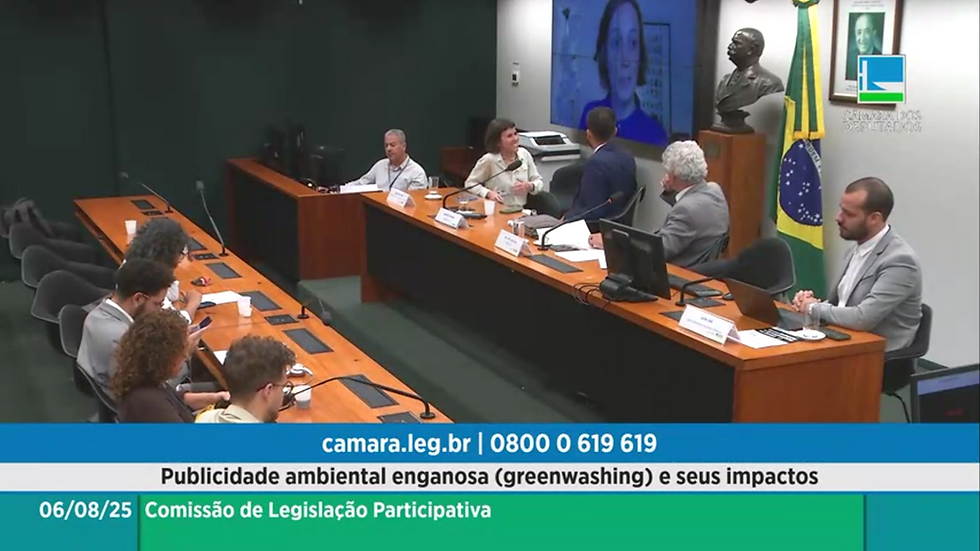NetLab article on socio-environmental disinformation presented at the 32nd COMPÓS Annual Meeting
- Bernardo Laranja
- Jul 7, 2023
- 2 min read
Updated: Jan 25, 2024

From left to right: Marina Loureiro, Débora Salles, Marie Santini and Priscila Medeiros | Credits: Reproduction
Between the 3rd and 7th of July, the School of Communications and Arts of the University of São Paulo (ECA-USP) hosted the 32nd edition of the Annual Meeting of COMPÓS (National Association of Postgraduate Programs in Communication). It brought together academics and experts from various parts of Brazil in the first face-to-face meeting since the Covid-19 pandemic. With the theme “Communication for Life”, the event highlighted the important role that the many activities in the field of Communication play within the scope of Brazilian science.
Over the course of two days, the program included mini-courses, conferences, book launches and meetings of Working Groups (WGs), including the WG “Communication of Science and Scientific Policies”, which was making its debut at COMPÓS 2023.
The WG was coordinated by professors Thaiane Oliveira (UFF) and Diógenes Lycarião (UFC). An article from the Internet and Social Media Studies Laboratory at the Federal University of Rio de Janeiro (NetLab UFRJ) was presented presented by authors Priscila Medeiros, Débora Salles, Marina Loureiro and Marie Santini entitled “Desinformação Socioambiental Como Ferramenta De Propaganda: Uma análise multiplataforma sobre a crise humanitária Yanomami”
The repercussion of the Yanomami genocide on the various digital platforms was analyzed during the lecture, exposing the strategies, characters and main disinformation narratives used to minimize the seriousness of the situation and delegitimize indigenous agendas in general.
About the theme
Based on a specific focus on the Yanomami humanitarian crisis, the article summarizes the experience and knowledge accumulated by NetLab UFRJ in research on the social implications of propaganda, disinformation and automation in different topics related to the so-called “Socio-environmental Infodemic”.
With the case reverberating on social media, which started to gain strength in January 2023, NetLab UFRJ mapped misinformation on the topic on the main digital platforms in Brazil.
A longitudinal analysis of the socio-environmental debate in the Brazilian digital media ecosystem was presented, with the systematization of narratives, content standards, dissemination strategies and instrumentalization of platforms to propagate disinformation.
Based on the empirical results of the research, the authors discussed the structuring and modes of operation of the socio-environmental disinformation ecosystem in Brazil with the other members of the WG. The presentation highlighted the capacity this ecosystem has to mobilize mainstream media, local media portals and junk news sources in order to spread narratives against the Yanomami, in addition to coordinated multiplatform action between influencers, politicians and financiers.


